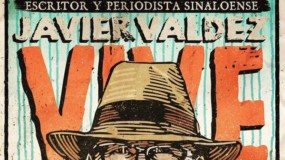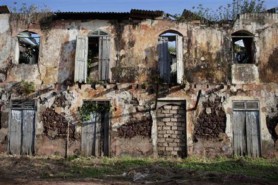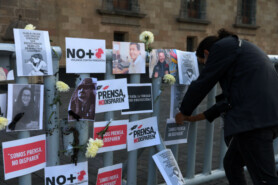Posted on 07 Mar 2018
The recent killing of Slovakian journalist Jan Kuciak and his fiancée, Martina Kusnirova, is the second assassination of a journalist in the EU in the past few months. Prominent Maltese investigative journalist and blogger Daphne Caruana Galizia was killed in a car bomb in October 2017.
According to the Committee to Protect Journalists (CPJ), which has been monitoring journalists killed in the course of their work since 1992, murdered journalists fall into two broad categories: those who are caught in the crossfire of conflict and those who are murdered for political motives. In the case of the latter, murder is used to silence their voices, including those who are targets of violent-extremist groups who see their publications as an insult to their ideologies (the murder of the 11 French Charlie Hebdo journalists in 2015 is a prime example).
As well as the stories of individual tragedy and bravery that they tell, the murders of Kuciak and Caruana Galizia must be viewed with great concern.
First, that these targeted killings took place in EU states is unusual. While both Slovakia and Malta are small countries on the geographic periphery of the union, the EU is not generally characterized by a predilection to violence against the media. (It is worth noting, however, that since CPJ began monitoring, some 350 journalists and media workers have been killed in wider Europe, including Turkey, Russia and the Balkans.)
Secondly, these journalists were killed while investigating transnational links between organized crime, business and political elites. Kuciak was investigating the Italian mafia group ’Ndrangheta’s links with the Slovakian government. Caruana Galizia was a regular blogger on political corruption, shady business deals and organized crime in Malta. However, her most significant recent investigations stemmed from the Panama Papers, leaked financial information that confirmed the illicit financial flows of many prominent persons, including an an exposé that revealed the offshore companies of a minister and the chief of staff of Malta’s prime minister, Joseph Muscat.
In Slovakia, Kuciak was investigating alleged access that members of the ’Ndrangheta had to the Slovak government and to national secrets through two of Prime Minister Robert Fico’s most important advisors.
Whether or not the politicians were involved in these assassinations, these cases go beyond the ordered hits of political protagonists or the infighting of competing mafia groups. They represent a powerful alliance of elite criminal interests that blurs the boundaries between business, politics and crime. It was not only criminal groups that stood to lose, but also their allies in the so-called upperworld, who saw an immediate threat to their legitimacy. These journalists were poking at a complicated network of intertwined relations, the result of years of hidden deal making – a proverbial criminal complex.
That criminal complex – not only in Europe, but across the globe – is the new normal of organized crime. It is the product of the liberalization of the international financial system, and the intertwining of illegal and grey money flows, and the interests behind them. It has been clearly exposed by the Panama Papers and other pieces of investigative reporting.
For these criminal networks, there is much to hide – and much to lose.
Our work on collecting data on assassinations suggests that contracting out murders is traditionally a way to stay one step removed from the murders commissioned, in the hope that the links between the ultimate perpetrators and the killings will not be found, that the period of heat will pass.
But as these two murders have shown, the increasing involvement of organised crime into elite political and business operations, such incidents are on the rise. Organized crime has exacerbated a “gangland” view of the world: critics must be silenced if they endanger business.
Furthermore, the brazenness of the assassinations seems to suggest that the perpetrators do not seem to fear the consequences of their actions – even within the boundaries of the EU, because they work with the protection of the criminal complex.
Both these murders were brutal and dramatic. Caruana Galizia was publicly executed when her car exploded minutes after she left her home in Malta. Kuciak and his fiancée were shot at home in bed. The manner of their killings sent out a strong message that no journalist can feel safe for themselves or their loved ones. Their deaths were meant to silence the voice of independent journalists and deter others from further investigations.
The Global Initiative relies closely on investigative journalists to support our research, to call attention to new trends and to provide the evidence basis for policymaking. Our Network of Experts comprises a sizeable proportion of investigative journalists and other media workers, and we engage heavily in capacity building and support for the sector through various initiatives, including our #GIResilience and #ENACT projects.
Unfortunately, the free space needed for independent journalism to flourish has been thwarted by the interests of organized crime – often with too little condemnation from political leadership or outsiders. At the same time, cost-cutting in media companies has meant journalists are now more likely to work alone and independently, without the security of the protection provided by bigger media organizations to their employees. Nine out of ten journalists killed for their reporting are covering stories in their local environment.
In Mexico, the country with the highest fatality rate for journalists, over 50 journalists have been killed since 1992. Seven died in the last year, including award-winning journalist and Global Initiative supporter Javier Valdez Cárdenas. As the compelling CPJ report, No Excuse, describes, endemic impunity allows criminal gangs, corrupt officials and cartels to silence their critics.
In places where journalists can be threatened and killed with impunity, they often resort to self-censorship when investigating and reporting on cases involving organized-crime figures. In a project currently under way, a journalist has recently gone into hiding to escape the attention of a violent criminal group.
Immediately after his death, Kuciak’s colleagues published his investigation in the original Slovakian and in English. The dramatic circumstances of his death ensured that the story received widespread coverage in the international press and on social media, placing great pressure on Slovakia’s government to respond forcibly.
The response to thwart the elite criminal interests must be, as it has been in Slovakia, to amplify the voices of the dead, and to project as widely as possible the findings of their investigations. It means ensuring that local journalists are connected to international colleagues, linking their reporting to international coverage and audiences, and ensuring, wherever possible, global coverage of cases where they are threatened. Safety is built on greater international solidarity.
In a growing number of countries, it is no longer police officers who are on the front line against organized crime – it is journalists and civil society. As we suggest, these trends are a culmination of years of complex interweaving of underworld and upperworld interests.
There is still much that we do not understand about the evolving nature of the criminal complex. Independent journalism will remain at the forefront of bringing us the news.



